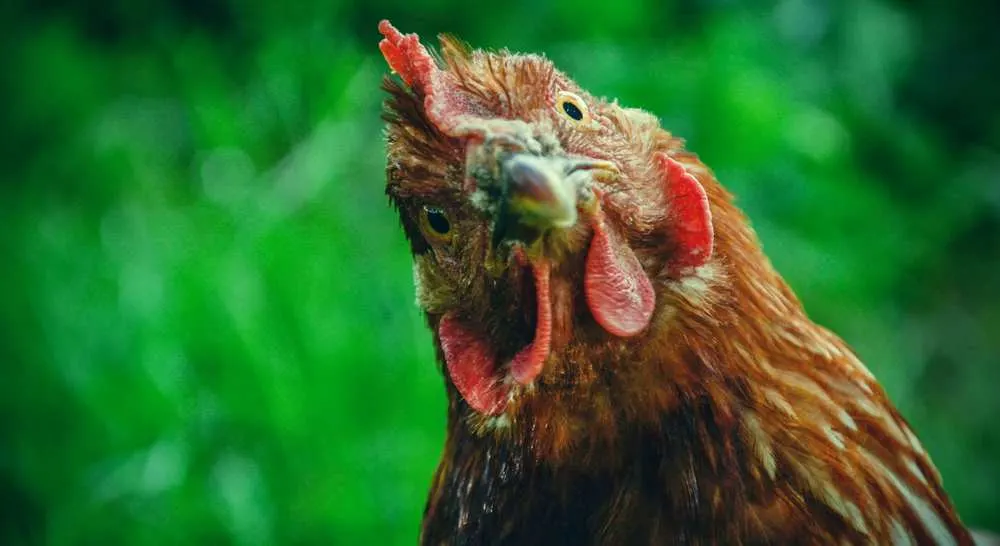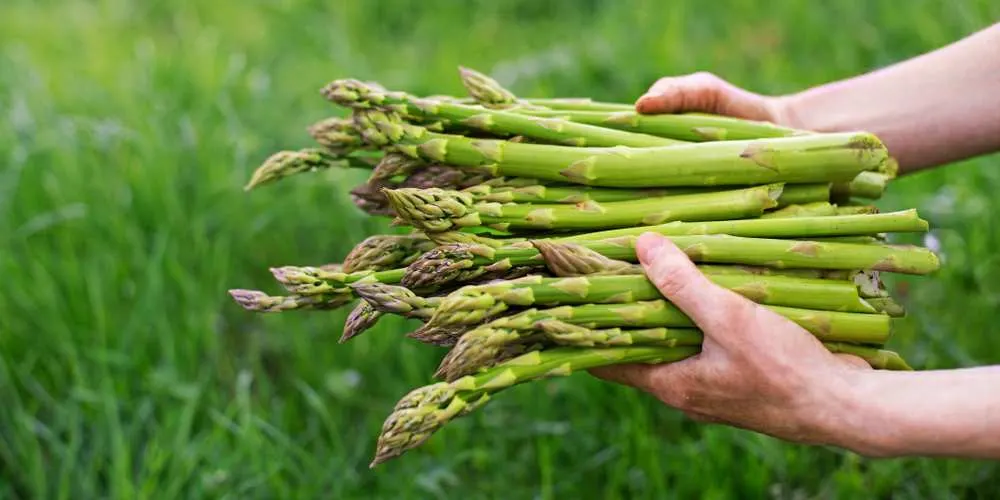I can’t blame you for wondering can chickens eat asparagus. I’ve asked myself that exact question not that long ago.
The answer is an absolute yes! Asparagus has some wonderful characteristics that are needed by your chickens on daily basis, so there’s no question about it.
You all know the benefits to humans eating asparagus, but are the said benefits the same for your chicks? Are there some unwanted side effects or things to worry about?
I assure you, these are some valid questions and in order to find out about anything and everything I suggest you keep scrolling and take notes!

Why Is It A Good Idea To Feed Your Chickens Asparagus?
In general, chickens like to eat the same food people eat, that’s precisely the reason why many people (including me) feed their chickens tabletop leftovers. Most of the food that will end up in the trash is more than suitable for you chicks.
Asparagus is no exception to this. Raw, boiled, or grilled, you can feed your chickens with it without any hesitation. When I first tried this, I was amazed at the speed of my chicks absolutely devouring the asparagus. They didn’t even look at the other food I gave them!
This is due to the unusual but pleasant flavor of the asparagus that chickens seem to enjoy so much. Besides the suitable flavor, asparagus is full of very healthy nutrients such as:
| INGREDIENTS | VALUES |
|---|---|
| Calories | 20 |
| Vitamin C | 12% RDI |
| Vitamin A | 19% RDI |
| Vitamin K | 56% RDI |
| Vitamin E | 8% RDI |
| Fat | 0,2 g |
| Protein | 2,2 g |
| Fiber | 1,8 g |
| Foliate | 35% RDI |
| Phosphorus | 4% RDI |
| Potassium | 5% RDI |
*RDI stands for Reference Daily Intake
These are just some of the fantastic nutrients found in asparagus. Besides these, this veggie contains iron, riboflavin, and zinc. All of these are needed by your chicks and will be of great health benefit to them.
Keep in mind that if you boil or cook them in any way, they will lose some of these values, so maybe it’s best to feed them raw to your chickens. This is exactly what I do, and I haven’t run into any problems.
Nevertheless, it’s not a big deal if you have some boiled asparagus laying around after a tasty dinner and you decide to give the remains to your animals. Remember – some asparagus is better than no asparagus!
As you had a chance to find out earlier, asparagus is very rich in fiber. You all know how important this is for the regular bowel movement and healthy stool of your chickens. Needless to say, both of these can be a problem that is easily solved by adding some of this veggie into your animal’s regular diet.
Vitamin K also came to my attention, because there’s enough of it in asparagus to cover over half of the recommended daily intake of it. This is primarily important for keeping your chick’s bones healthy and strong. This is especially important if you keep in mind the brittle bones that are found in chicken wings and legs.
It’s highly recommended that you give the asparagus to your chickens a few times a week, giving them enough time to get used to the newly added food.

Potential Unwanted Side Effects
There’s nothing that tells anyone that asparagus is bad for anyone (maybe except the ones allergic to it). Every single ingredient found in this veggie is healthy in its own way, thus not posing a threat to virtually anyone who eats it.
There are some things asparagus can cause that you might want to keep an eye out for. The first (and the funniest to me) is that people claim that if you feed too much asparagus too often to your chickens, their eggs might change in taste because of it.
I haven’t experienced this myself, but it seems I haven’t fed my chickens enough to witness this strange occurrence.
If you encounter this and you’re bothered by it, just decrease the amount of asparagus that you give to your chicks on a daily level.
Another thing that your chicks might experience is bloating. This can occur in the first few days of you introducing asparagus to your chickens. It’s perfectly normal and can happen every time you try to feed your chicks with new food.
This is due to the chicken’s stomachs not being used to the new food, and thus having difficulty digesting it. This will pass in a few days, and your chicks shouldn’t have a problem with it in the future.
There’s one more thing you need to be careful about. This is the least possible thing that can happen, but I have to mention it since there’s even a slim possibility of it happening:
Sometimes your chicks can experience allergic-like reactions to food. This is exhibited by vomiting or strong diarrhea. If you notice a reaction similar to this, you should stop feeding that chicken with asparagus (or any type of food that causes that reaction).

Ways Of Preparing Asparagus For Your Chickens
Some people may not know that there are different different types of asparagus. There is the regular green asparagus, the purple asparagus, and the white asparagus. The white one is most commonly pickled and not eaten raw, but the other two kinds are fantastic for boiling or grilling, or even eating raw.
Just like with humans, your chickens have food preferences, so don’t be surprised if they favor one kind of asparagus over another because that’s perfectly fine!
Regardless of the kind you chose to feed your chickens (or what your chickens decide they like), you need to follow a few easy steps:
- Carefully wash the asparagus with warm water – by doing this you are making sure that no pesticides or insecticides end up in your chick’s stomachs.
- Cut off the lower end of the asparagus – this is the driest part of this vegetable and also can be the dirtiest.
- If you wish to boil it, you should do so for a few minutes.
- Cut them up into small strips or pieces.
By cutting them into smaller pieces you are ensuring that your chicks won’t have a hard time nibbling on them while eating them.
Boiling the asparagus is a good way to soften it up, so your chickens can devour it faster (I’ve seen it happen, and it’s a real show!). As I’ve mentioned before, by doing this you lose some nutritional values, but nothing too important.
If this helps your chickens get used to asparagus in their regular diet, it’s really a good deal. Later on, you can serve them raw asparagus, and they’ll barely know the difference.
If you like to grill the asparagus as a side dish for you or your loved ones, you can also share grilled asparagus with your chickens. Just make sure other foods (such as hot sauce or salt) that aren’t recommended for the chickens to digest aren’t found on the asparagus.
Another thing I also like to do is to mix up the pieces of asparagus with other chicken food, so they eat the rest of their food, and not only the greeny delight! I like to use some seeds or tomatoes in this instance because in my experience it goes best with the asparagus.
This is also a fantastic trick to let your chicks get used to the smell and the taste of the asparagus because it will be diluted with other food.

Final Thoughts
If you’re still in the dilemma about can chickens eat asparagus, I think it’s quite obvious.
Assuming you’re not ready for the asparagus-tasting scrambled eggs, don’t go overboard with it, but besides that, your chicks are perfectly fine to eat this tasty veggie. Another selling point of feeding your animals asparagus is that you’ll never have to throw food and feel wasteful doing it. Your chicks will enjoy it, and you’ll be peaceful knowing you didn’t waste any leftovers.
So I suggest you grill up some asparagus for your next dinner, and in case you feel too full to eat another bite, try sharing it with your chickens. Enjoy!


